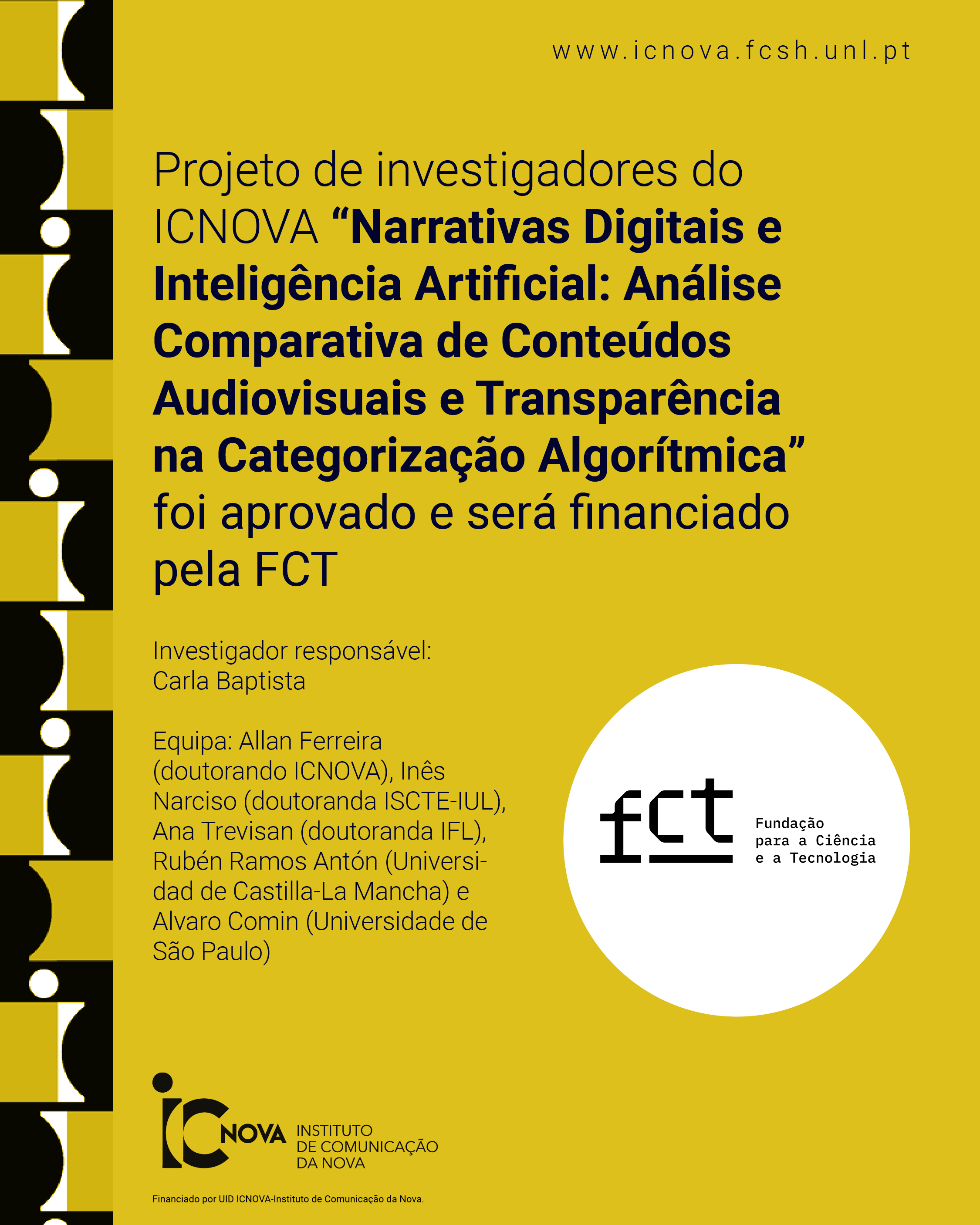The call for papers for the Media & Jornalismo (Vol. 26 nº48), with the themeAudiences and Intersectionalities, is open until 15 September 2025.
Thematic editors: Juan José Sánchez Soriano (Universidad Rey Juan Carlos, Espanha), Rafael Ventura (Universitat de Lleida, Espanha) and Isabel Villegas Simón (Universitat Pompeu Fabra, Espanha)
The research topic of this call for papers primarily focuses on studies of audience reception across various intersectionalities, including LGBTIQ+ individuals, people with disabilities, older adults, racialized communities, people with diverse body types, and women. The objective is to analyze how these social groups interpret and engage with their representation in various media formats (TV news, press, reality shows, TV series, feature films, social media, content creation platforms, etc.). Additionally, it is valuable to examine how general audiences perceive media discourses surrounding these intersectionalities. In this way, the goal is to explore both the mirror effect and the window effect within the audience.
On the one hand, we define audiences in a broad sense, encompassing all individuals who engage with and interact with media content reflective of their time (Ha, 2020). Moreover, we propose viewing audiences not merely as passive consumers of cultural and media content, but as active agents with a crucial role in interpreting these messages (Livingstone, 2015). Therefore, it is essential to understand and explore how these audiences relate to and engage with such content, as evidenced by recent studies, such as those examining the interpretations of trans individuals regarding their representation in television series (Villegas-Simón et al., 2024).
On the other hand, like the society in which it exists, the audience is diverse and heterogeneous (Kristensen & From, 2015). Thus, we are in a context where, historically, the representation of minority social groups has been underrepresented or often constructed through stigma and negative stereotypes (Sánchez-Soriano, 2023), as is the case with people with disabilities (Page et al., 2024) or individuals with diverse body types (Collins et al., 2024). As a result, numerous studies have focused on discourse analysis of both traditional and emerging representations (Ventura et al., 2024). However, we believe it is essential to shift the focus to the final stage of the entire media cycle: how audiences interact with these representations, examining how they engage with and respond to such content.
At the same time, social media has allowed the emergence of new content and representations that generate seemingly more diverse discourses, but which also compete with the spread of hate speech (Miranda et al., 2024). For this reason, it is valuable to develop new research that, within the framework of intersectionality, focuses on analyzing the reception of content from any media and format, including the press, radio, and cinema, as well as social media and content creation platforms like SVODs, while focusing on the current cultural and media context.
Topics:
· Methodologies focused on audiences and their interactions with cultural and media content. Reflections and ethics surrounding their application;
· Minority audiences and their media and cultural consumption, including women, LGBTIQ+ individuals, people with disabilities, older adults, racialized communities, and individuals with diverse body types;
· Perceptions, interactions, and responses of general audiences to content addressing diversity and intersectionality;
· Media literacy and intersectionality. Formal and informal learning about diversity and intersectionality through the media;
· Fandom and intersectionality;
· Youth, intersectionality, and cultural and media consumption;
· Digital audiences and intersectionality. Interaction, consumption, and responses to content generated on digital platforms;
· Meta-research focused on academic production about audiences and intersectionalities.
IMPORTANT DATES
Deadline for submitting articles: September 15, 2025
Editors’ decision: January 2026
Expected publication date: April 2026
Media & Jornalismo (RMJ) is a peer-reviewed scientific journal, indexed in Scopus and the Web of Science (Emerging Sources Citation). Each paper is sent to two reviewers, who are invited in advance to evaluate it based on the criteria of quality, originality, and relevance in line with the aim and theme of the specific issue of the journal.
Articles can be submitted in English, Spanish, and Portuguese.
Manuscripts must be submitted through the journal’s website (https://impactum-journals.uc.pt/mj). Once accessing RMJ for the first time, registration is required to submit the article and track the editorial process. We recommend reviewing the Author Guidelines, Submission Conditions, and the journal’s Editorial Policy.
For more information, you can contact patriciacontreiras@fcsh.unl.pt



